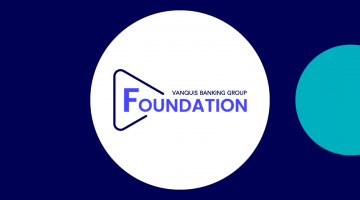Beyond supporting people to access credit, we believe that we have a responsibility to help address all barriers to financial inclusion.
We collaborate with partners to enhance financial literacy by enabling individuals to develop budgeting skills so that they better understand financial documents and terminology. Through our efforts with both children and adults, we strive to foster greater financial inclusion in our communities, both now and for generations to come.
For Vanquis Banking Group, financial inclusion is about providing individuals with accessible and affordable financial products and services - credit cards, loans, vehicle finance, and savings– all delivered in a responsible and sustainable way.
In doing so, we can support a person’s day-to-day living, and help them and their families plan for everything from long-term goals to investing in education or health, to unexpected emergencies all of which can improve the overall quality of their everyday lives.
Ensuring individuals have access to financial products and services is also vital for their financial wellbeing and boosting economic opportunities.
Beyond Products
At Vanquis Banking Group we understand that financial inclusion goes way beyond offering our 1.75million customers accessible and affordable products. We understand that it’s also about helping people to better understand numbers so that they can manage their budgets and day-to-day finances and offering the most appropriate support where people need it most.
In the first instance, this is about ensuring that the products we offer to our customers include forbearance options, such as breathing space or an adjustment to their repayment plans and that the service we provide to our customers includes supporting them if they encounter financial difficulties.
We’re also committed to ensuring that our communications are easy to read and fully accessible, particularly for those customers who may struggle with numbers and interpreting financial information. This is why we have a partnership with Plain Numbers. Through our work with Plain Numbers, we are working to improve the way we explain important financial information to our customers so that they can fully understand their financial situation and are able to make better financial decisions and deal with the challenges that life may throw at them.
This is also why we partner with UK-based money/debt advice charities such as StepChange Debt Charity and Money Advice Trust who not only advise us but also support our customers too. By partnering with these organisations, our customers can access independent and personal financial advice and support if they encounter financial challenges. When a customer begins to struggle, we take every care to ensure the right outcomes are achieved for them.
Improving number confidence
We also recognise the important role that good numeracy skills play in helping individuals and communities better cope with increasing uncertainty and change. Low numeracy makes people vulnerable to debt, fraud and financial exclusion.
We share National Numeracy’s belief that every child can develop the number confidence and skills they need, both at school and throughout their lives. The charity’s work to support children’s numeracy targets disadvantaged communities, where the need is greatest and where improving numeracy can act to drive social mobility.
Helping children feel confident about maths can give them a head start in being able to understand budgets and the world of finance as they grow.
That’s why we work with them to support number confidence in children through a parental engagement programme which supports parents, carers and teachers to gain number confidence to help children in their care to develop the numeracy skills and confidence they need.
Through our Community Foundation partnerships, we provide grant funding to grass roots voluntary organisations who are providing a range of activities which aim to help improve financial (as well as social) inclusion and that respond specifically to the needs of individual communities.
For example, this could include funding for a charity which enable outreach workers to provide money advice to people who have limited physical access to such services, because of a mental health and wellbeing condition, or disability or because they live in a rural area.
Funding these types of projects means that we can support bespoke services that are addressing the challenges faced in that immediate community.





